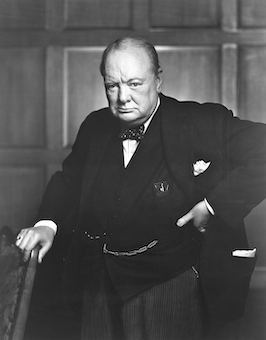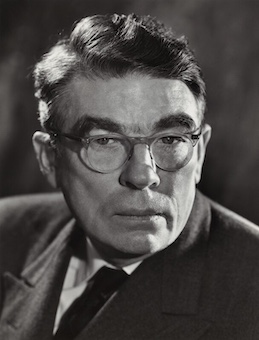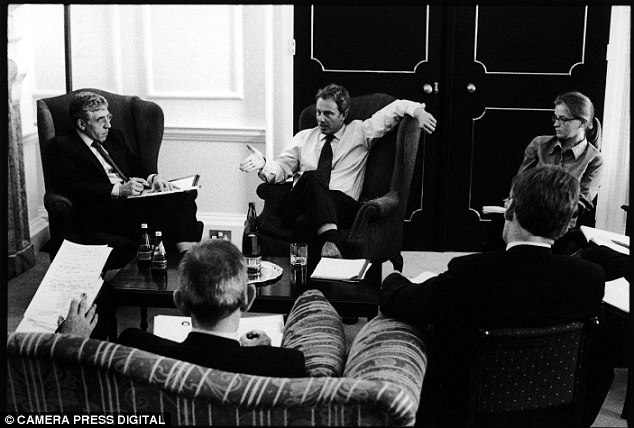Continuing Subversion of Juries

“...the great principle of Habeas Corpus and Trial by Jury ... are the supreme protection invented by the British people for ordinary individuals against the state. The power of the executive to cast a man into prison without formulating any charge known to the law, and particularly to deny him judgement by his peers for an indefinite period, is in the highest degree odious, and is the foundation of all totalitarian governments."
Winston Churchill (21st November 1943)
From Subduing the Jury by E.P. Thompson
Jury power since abolition of the grand jury has continued to be undermined and further restricted. As E.P. Thompson has stated:
"The defence of the subject against the over-mighty state was once regarded – by such men as Sir William Blackstone and Thomas Jefferson – as a crucial function of the jury, elevating it to a high place among the defining institutions of a political democracy. For Alexis de Tocqueville the American jury was an ‘eminently republican element in government’ which ‘places the real direction of Society in the hands of the governed’.
Jury power since abolition of the grand jury has continued to be undermined and further restricted. As E.P. Thompson has stated:
"The defence of the subject against the over-mighty state was once regarded – by such men as Sir William Blackstone and Thomas Jefferson – as a crucial function of the jury, elevating it to a high place among the defining institutions of a political democracy. For Alexis de Tocqueville the American jury was an ‘eminently republican element in government’ which ‘places the real direction of Society in the hands of the governed’.
"I know of only one old judge, long retired from practice, who even understands this language today. And he – Lord Devlin – now writes in elegiac tone. Thirty years ago he could still say that “the jury is the lamp that shows that freedom lives.” In 1978, he warned of the gathering signs “that the jury has another half-century or so of life to be spent in the sort of comfortable reservation which conquerors, bringing with them a new civilisation, assign to the natives whom they are displacing.”
December 1986

Baron Patrick DEVLIN (1905-1992)
British judge and legal philosopher
“For more than seven out of the eight centuries during which the judges of the common law have administered justice in this country, trial by jury ensured that Englishmen got the justice they liked and not the sort of justice that the government or the lawyers or any body of experts thought was good for them.
“Each jury is a little parliament. The jury sense is the parliamentary sense. I cannot the see the one dying and the other surviving. The first object of any tyrant in Whitehall would be to make parliament utterly subservient to his will; and the next to overthrow or diminish trial by jury, for no tyrant could afford to leave a subject’s freedom in the hands of twelve of his countrymen. So that trial by jury is more than an instrument of justice and more than one wheel of the constitution: it is the lamp that shows that freedom lives.”
Trial by Jury, Sir Patrick Devlin (1956)
Summary Trials
Methods used to marginalise the role of Trial by Jury have included the increasing use of ‘summary’ trials wherein offences can only be tried in Magistrates Court and also attempts to diminish the range of ‘either way’ offences wherein the accused can still elect for trial by jury irrespective of whether the prosecution agrees or not. Such a right does not exist in Scotland.
This method is tried repeatedly by different governments:
"Over the last twenty-five years or so, governments of all political complexions have endeavoured with some degree of success to downgrade various ‘either-way’ crimes to the category of offences triable only in the Magistrates Court." [The Limitations On Trial by Jury, Peter Duff (2001)]
95% of criminal cases are now heard in Magistrates Courts. Of the remaining 5% of cases heard in the Crown Court, in a majority of cases either the defendant pleads guilty or the judge directs the jury to acquit. As a result juries actually decide only around 1% of criminal cases.
Methods used to marginalise the role of Trial by Jury have included the increasing use of ‘summary’ trials wherein offences can only be tried in Magistrates Court and also attempts to diminish the range of ‘either way’ offences wherein the accused can still elect for trial by jury irrespective of whether the prosecution agrees or not. Such a right does not exist in Scotland.
This method is tried repeatedly by different governments:
"Over the last twenty-five years or so, governments of all political complexions have endeavoured with some degree of success to downgrade various ‘either-way’ crimes to the category of offences triable only in the Magistrates Court." [The Limitations On Trial by Jury, Peter Duff (2001)]
95% of criminal cases are now heard in Magistrates Courts. Of the remaining 5% of cases heard in the Crown Court, in a majority of cases either the defendant pleads guilty or the judge directs the jury to acquit. As a result juries actually decide only around 1% of criminal cases.
Free Speech and the Right to Trial by Jury
Since juryless trials were introduced in 1846 the right to trial by jury in civil trials steadily declined.
In 1981 the Supreme (Seniors) Court Act restricted the right to jury trial in cases of fraud, libel, slander, malicious prosecution and false imprisonment. However this 'right' was qualified - trial by jury would be allowed "unless the court is of opinion that the trial requires any prolonged examination of documents or accounts or any scientific or local investigation which cannot conveniently be made with a jury."
This limited access to jury trial was further eroded with the 2013 Defamation Act.
Trial by jury in cases of libel and slander are now no longer a right, but are decided by the judge. That is to say, the right to trial by a jury able to decide both law and fact as deliberately reaffirmed in the 1792 Libel Act introduced by Charles James Fox (who later also introduced the Act banning the slave trade in 1807) has been eradicated.
Fox’s Libel Act had enabled the early working class movement to exercise their right to free speech to publicly debate the merits of the French Revolution even in time of war due to the power of juries to decide both fact and law.
The effective repeal of Fox's Libel Act has subverted jury power in this vital respect and accordingly substantially constrained the right to free speech. This fundamental right is more limited in 2023 than it was in 1794.
Nevertheless it remains the case that juries still deliberate in secret and have no compulsory obligation to explain their verdict. Accordingly they still retain, in practice, the power to decide matters of both fact and law.
Since juryless trials were introduced in 1846 the right to trial by jury in civil trials steadily declined.
In 1981 the Supreme (Seniors) Court Act restricted the right to jury trial in cases of fraud, libel, slander, malicious prosecution and false imprisonment. However this 'right' was qualified - trial by jury would be allowed "unless the court is of opinion that the trial requires any prolonged examination of documents or accounts or any scientific or local investigation which cannot conveniently be made with a jury."
This limited access to jury trial was further eroded with the 2013 Defamation Act.
Trial by jury in cases of libel and slander are now no longer a right, but are decided by the judge. That is to say, the right to trial by a jury able to decide both law and fact as deliberately reaffirmed in the 1792 Libel Act introduced by Charles James Fox (who later also introduced the Act banning the slave trade in 1807) has been eradicated.
Fox’s Libel Act had enabled the early working class movement to exercise their right to free speech to publicly debate the merits of the French Revolution even in time of war due to the power of juries to decide both fact and law.
The effective repeal of Fox's Libel Act has subverted jury power in this vital respect and accordingly substantially constrained the right to free speech. This fundamental right is more limited in 2023 than it was in 1794.
Nevertheless it remains the case that juries still deliberate in secret and have no compulsory obligation to explain their verdict. Accordingly they still retain, in practice, the power to decide matters of both fact and law.
Post War
Tony Blair's government has been the most dedicated in its attempts to limit jury trial.
In 1999 Home Secretary Jack Straw got the House of Commons to approve measures to actually abolish the right to jury trial in ‘either way’ cases.
Fortunately the House of Lords - then smaller and less packed with cronies - put up sufficient resistance to ensure that Straw’s Bill was withdrawn at that time.
An underlying motive for such measures to abolish the right to trial by jury in England and Wales is in order that the controlled, quasi juries or juryless practices of European law become dominant in this country. This could be detected even as far back as the Fabian influenced decision not to establish jury trial in post war Europe. The Labour Party accordingly introduced other restrictions on the ‘freeborn’ rights won at such cost long ago in the English Civil War and before. In such manner double jeopardy and jury trial in cases where jury tampering might be suspected have been abolished as has also the right to silence.
Tony Blair's government has been the most dedicated in its attempts to limit jury trial.
In 1999 Home Secretary Jack Straw got the House of Commons to approve measures to actually abolish the right to jury trial in ‘either way’ cases.
Fortunately the House of Lords - then smaller and less packed with cronies - put up sufficient resistance to ensure that Straw’s Bill was withdrawn at that time.
An underlying motive for such measures to abolish the right to trial by jury in England and Wales is in order that the controlled, quasi juries or juryless practices of European law become dominant in this country. This could be detected even as far back as the Fabian influenced decision not to establish jury trial in post war Europe. The Labour Party accordingly introduced other restrictions on the ‘freeborn’ rights won at such cost long ago in the English Civil War and before. In such manner double jeopardy and jury trial in cases where jury tampering might be suspected have been abolished as has also the right to silence.

Trade Unions
The subversion of such longstanding rights took place without any well recorded protest from the Trade Unions perhaps largely because they have been ‘advised’ by the legal profession and by Fabian Society members and fellow travellers (which includes much of the Parliamentary Labour Party and all its Prime Ministers).
As such it comes as little surprise that "the origins of industrial tribunals are ‘shrouded in silence, if not in mystery.' They were 'children of civil servants' and not created at the request of employers, unions or political parties." (British employment tribunals: from the side-lines to centre stage by Professor Susan Corby, University of Greenwich, UK).
This is the context for investigating how and why the right to trial by jury has been subverted and supplanted by juryless tribunals in regard to employment rights.
The subversion of such longstanding rights took place without any well recorded protest from the Trade Unions perhaps largely because they have been ‘advised’ by the legal profession and by Fabian Society members and fellow travellers (which includes much of the Parliamentary Labour Party and all its Prime Ministers).
As such it comes as little surprise that "the origins of industrial tribunals are ‘shrouded in silence, if not in mystery.' They were 'children of civil servants' and not created at the request of employers, unions or political parties." (British employment tribunals: from the side-lines to centre stage by Professor Susan Corby, University of Greenwich, UK).
This is the context for investigating how and why the right to trial by jury has been subverted and supplanted by juryless tribunals in regard to employment rights.
The Commonwealth and Ireland
Grand Juries have been increasingly restricted in most Commonwealth countries and Ireland (see exhibits). Their existence has become a matter of historical record only in some former colonies most especially in India, perhaps due in part to the Fabian inclinations of the Indian Prime Minister Nehru. The Grand Jury Museum will conduct further research into these areas.
Grand Juries have been increasingly restricted in most Commonwealth countries and Ireland (see exhibits). Their existence has become a matter of historical record only in some former colonies most especially in India, perhaps due in part to the Fabian inclinations of the Indian Prime Minister Nehru. The Grand Jury Museum will conduct further research into these areas.
The USA
The ‘capture’ of the Grand Jury was attempted not only at Federal Level but also at state level in various ways in different states.
A movement to defend Grand Jury powers at state level initiated largely through the American Republican Party may have helped to prevent outright abolition of grand juries in about half of the states.
Former President Trump's 2023 civil trial in New York has been orchestrated by the Prosecutor without a jury by means of an obscure statute. As such the trial represents a now famous example of the ways in which jury trial continues to be subverted even in the USA.
The ‘capture’ of the Grand Jury was attempted not only at Federal Level but also at state level in various ways in different states.
A movement to defend Grand Jury powers at state level initiated largely through the American Republican Party may have helped to prevent outright abolition of grand juries in about half of the states.
Former President Trump's 2023 civil trial in New York has been orchestrated by the Prosecutor without a jury by means of an obscure statute. As such the trial represents a now famous example of the ways in which jury trial continues to be subverted even in the USA.
Reinstatement of the Grand Jury
The Grand Jury Museum mission statement includes exploration of possibilities for reinstating the UK Grand Jury. These are wide ranging given that, as indicated in our exhibits, Grand Juries were involved not only in criminal and civil law but also in local government.
These issues have been raised by a number of authors. See, for example, ‘Why not Administrative Grand Juries?’ by Ronald F. Wright, published in Administrative Law Review (1992). Wright makes the point that “The rise of the administrative state, for reasons easily understood but often forgotten, created an inhospitable environment for direct citizen participation in government.”
The American Frontier in particular demonstrated how adaptable grand juries could be to varied circumstances. See for example The Grand Jury on the Frontier by Richard D. Younger. The Wisconsin Magazine of History , Autumn, 1956.
The Grand Jury Museum mission statement includes exploration of possibilities for reinstating the UK Grand Jury. These are wide ranging given that, as indicated in our exhibits, Grand Juries were involved not only in criminal and civil law but also in local government.
These issues have been raised by a number of authors. See, for example, ‘Why not Administrative Grand Juries?’ by Ronald F. Wright, published in Administrative Law Review (1992). Wright makes the point that “The rise of the administrative state, for reasons easily understood but often forgotten, created an inhospitable environment for direct citizen participation in government.”
The American Frontier in particular demonstrated how adaptable grand juries could be to varied circumstances. See for example The Grand Jury on the Frontier by Richard D. Younger. The Wisconsin Magazine of History , Autumn, 1956.